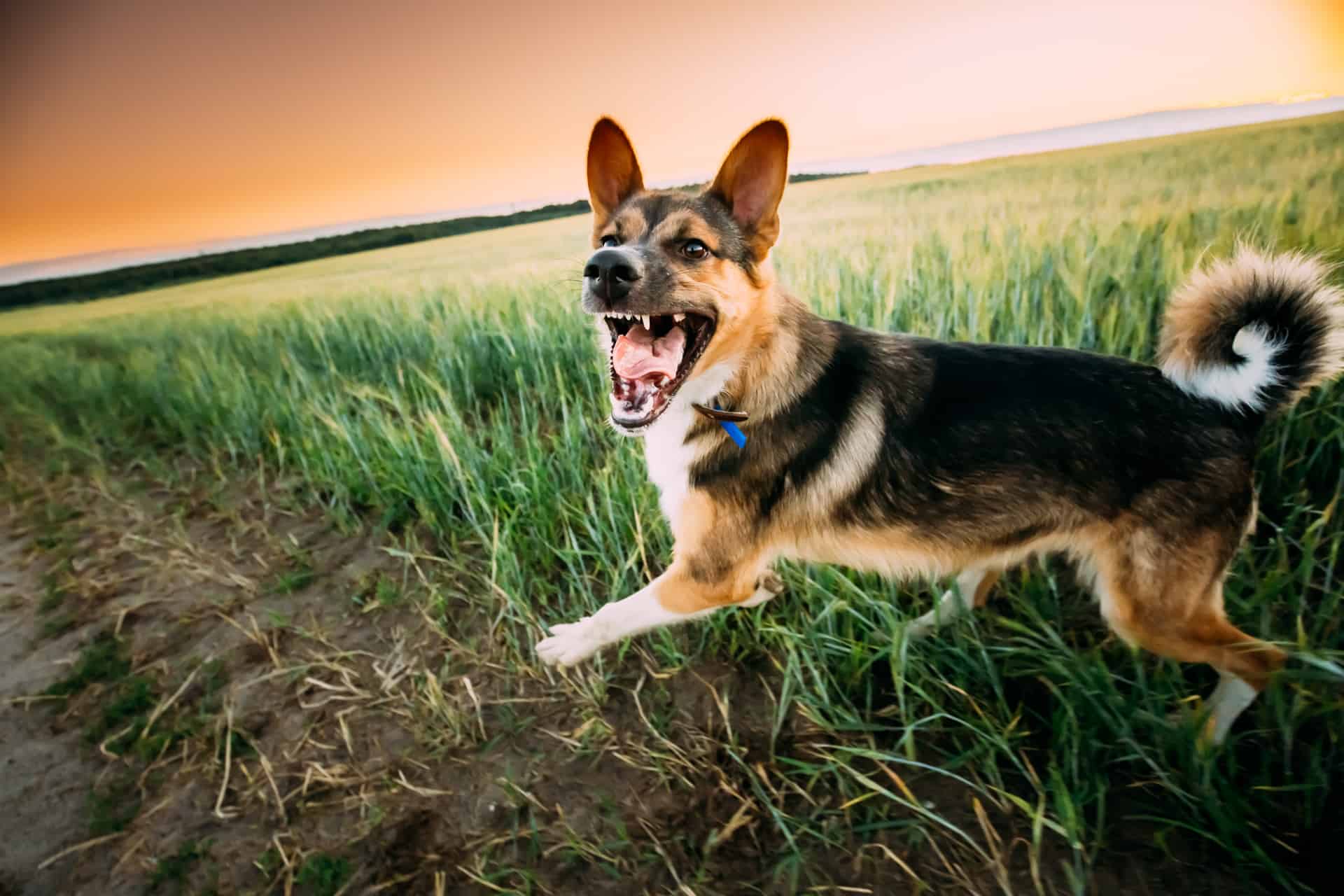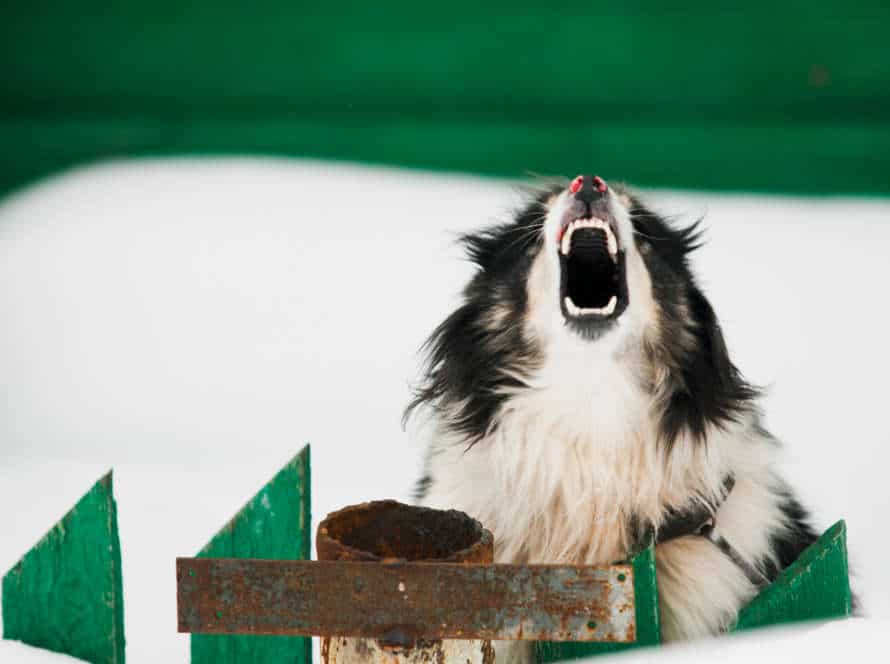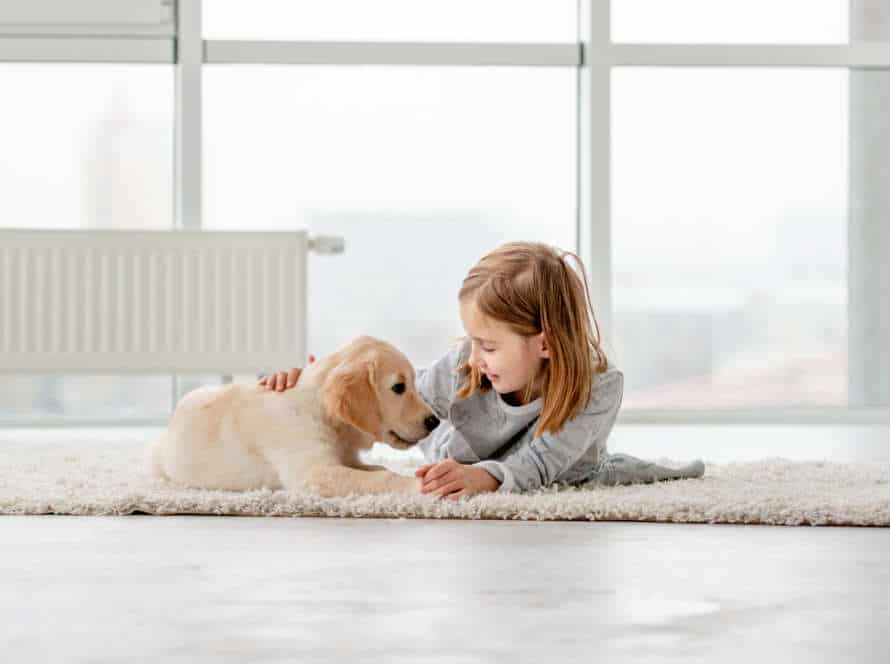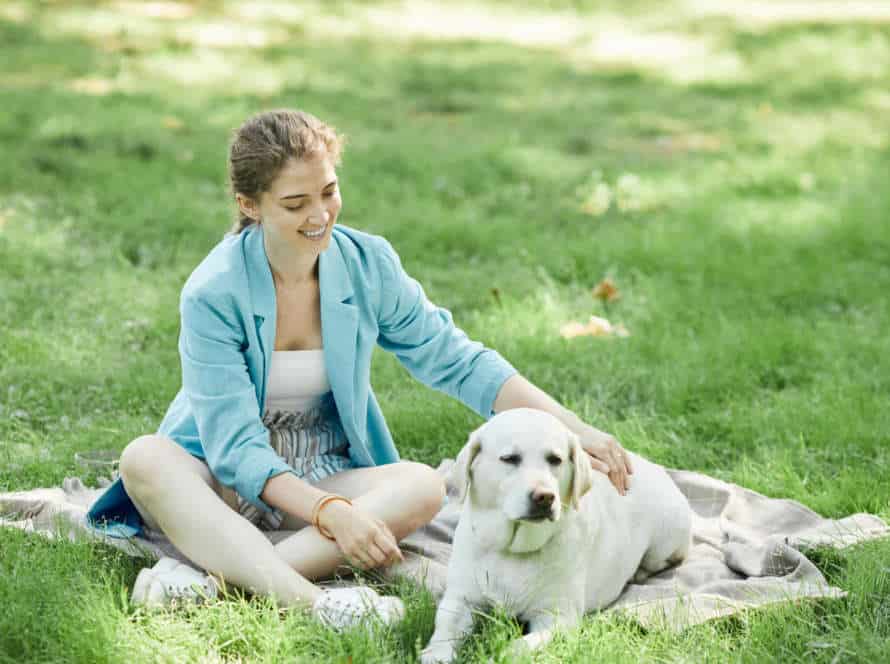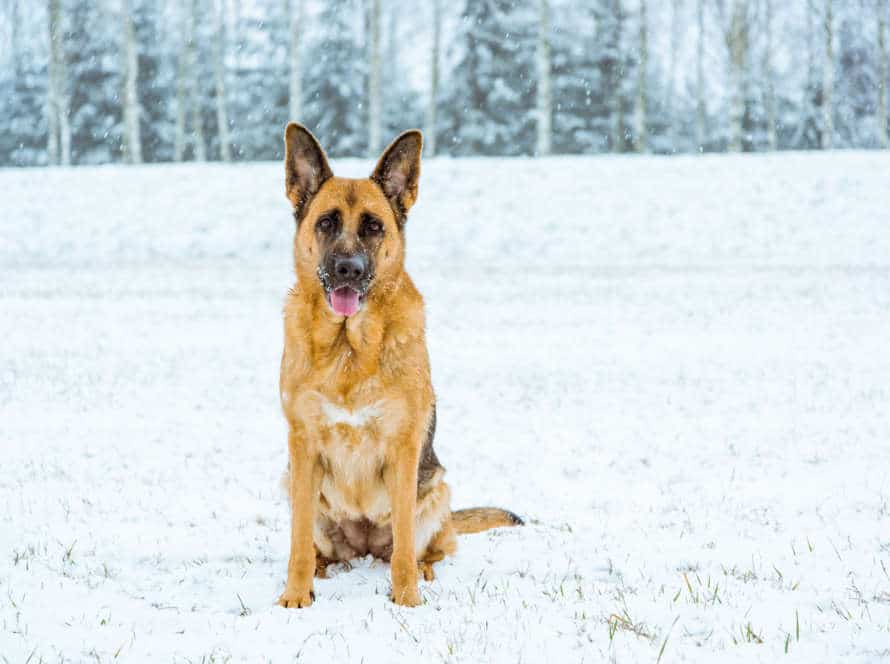The Role of Genetics in Dog Aggression: What You Need to Know
Genetics and dog aggression are a complex and debatable topic. Genetics may affect certain types of aggression, but they do not act alone.
Certain breeds may be more prone to aggression because of their genes. Guard dogs, for example, are bred to defend and may show aggression towards perceived threats.
Socialization, training, and environmental factors also have huge impacts on dog behavior. Bad socialization or mistreatment may produce aggression in any breed.
It’s critical that pet owners realize any dog can show aggression, and take precautions to stop it through proper training and socialization. If you are worried about your dog’s behavior or aggression, consult a professional trainer or behaviorist.
Pro tip: Early socialization and training are necessary to deter aggressive behavior in dogs, no matter their genetics.
Understanding Dog Aggression
Dog aggression is complex. Genetics can be a big role, but not the only one. To understand why a dog may be aggressive, we must explore all possible causes including genetics. This article will discuss the different aspects of canine aggression and how genetics play a part.
Types of dog aggression
Aggression in dogs can come in various forms. It is important to recognize what kind of aggression your pup exhibits to handle it right. Here are the four main types:
- Fear aggression: If a dog feels threatened – by loud sounds, quick movements, or strangers – they may act out to protect themselves.
- Protective aggression: This type of aggression is often seen in guard dogs and breeds trained for defense. It happens when a dog believes someone or something is a danger to their owner or territory.
- Possessive aggression: Dogs can be aggressive if someone tries to take away their food, toys, or anything else they consider theirs. They may guard their beds or other items as well.
- Dominance aggression: Unneutered male dogs may become aggressive when they feel challenged or threatened.
Genetics play a big role in aggression, and some breeds are more likely to show it. It’s best to address the behavior early on to stop any harm to people or animals.
Pro tip: A certified dog behavior specialist or vet can help create a plan to manage aggressive behavior in your pup.
How aggression manifests in dogs
Aggression in dogs can show in many ways, such as growling, biting, and lunging. Knowing the signs and causes of aggression is important to protect against injuries and maintain a good relationship.
Genetics have an impact on aggression in dogs, as certain breeds may be more prone to aggression. But, aggression can also be caused by environmental factors, like improper socialization, trauma, and stress.
Signs of aggression include growling, barking, snarling, biting, and lunging. Dogs may also show body language signs, like raised fur, pinned ears, and a stiff posture, when feeling threatened or defensive.
To treat aggression in dogs, one should seek help from a certified dog behaviorist or trainer. They will provide treatment options, such as behavior modification techniques, medication, and management strategies, to keep the dog and others safe.
Why understanding dog aggression is important
Understanding dog aggression is essential. It helps owners identify signs of aggression, allows them to train the dog appropriately, and strengthens the bond between dog and owner. Genetics are important, but not the only factor. Certain breeds may be more prone to aggression, but this does not mean all dogs in that breed will be temperamental. Proper training, socialization, and regular exercise can help reduce aggressive behaviors. Consult a professional for advice to address aggressive behaviors.
The Genetics of Dog Aggression
Genetics boast a weighty contribution to a dog’s aggressiveness. Breeders and owners can use this knowledge to get an idea of what may cause their pup to act up in an aggressive way. This article will take a look at the genetic elements that might make a dog aggressive and what can be done about it. It dives into the scientific explanation of aggression, as well as the behaviors connected to it.
How genetics influence dog behavior
Genetics have a big part in affecting canine behavior, including aggression. Studies found that certain breeds can be more likely to show aggression, such as Pit Bulls or Dobermans. Other breeds, like Golden Retrievers or Labradors, are bred to have lower aggression levels.
Though genetics may make a dog more predisposed to aggression, environment, training, and socialization also have a big impact. Knowing the breed and family history of your dog is vital to understanding their personality and preventing unwanted behaviors.
Pro tip: As a dog owner, learn your pup’s breed and family history. This will help you give the right training and socialization to prevent aggressive behaviors.
Breeds prone to aggressive behavior
Understanding that certain breeds of dogs are more genetically prone to aggression is key. Genetics can strongly influence a pup’s behavior, including aggression. Here are some breeds that are predisposed to it:
- Pit Bulls: History shows that they have been bred for dogfighting, and they tend to be quite tenacious and willing to fight. Not all Pit Bulls are aggressive, but they are responsible for many dog-related fatalities.
- Rottweilers: Loyal and protective, they can become aggressive if not socialized properly. They have a strong prey drive, which can make them territorial if not trained.
- Doberman Pinschers: Smart and loyal canines, these can become aggressive to strangers and other dogs if not socialized correctly. They have a strong protective instinct, and thus need proper training to prevent aggression.
It’s important to note that environmental factors, just as much as genetic ones, affect a dog’s behavior. Therefore, it’s essential to socialize and train your pup correctly, regardless of breed, to prevent aggressive behavior.
The role of nature versus nurture in dog aggression
Nature and nurture have a complex and disputed relationship when it comes to canine aggression. Genetics are important, yet environmental factors must be taken into consideration too. Certain dog breeds are more inclined to aggression, due to genetic influences. Although, the way a dog is brought up and its environment are incredibly important in forming its behavior and temperament.
Positive socialization, training and exercise are necessary for avoiding and managing canine aggression. Though genes may have an effect on a dog’s temperament, proper training, socialization and environment management can help to decrease aggressive behavior.
To be a responsible dog owner, one should understand their dog’s breed predilections and take measures to prevent any undesired aggressive conduct.
Identifying Aggressive Behaviors in Dogs
Genes influence aggressive actions in dogs. Knowing a dog’s breed is vital to understanding, avoiding and controlling aggressive behavior. This part examines the genetic link with aggression in canines and what pooch owners should be aware of.
Red flags to look out for
It’s key to recognize red flags in dogs’ behavior and body language to avoid dangerous situations. A few red flags are:
- Growling, snarling, baring teeth– signs of aggression.
- Stiff posture, raised fur– can show aggression or fear.
- Eye contact– can mean dominant behavior.
- Tail positioning– stiffness or between legs can mean aggression or fear.
Remember, aggressive behavior can be genetic, so work with a qualified trainer or behaviorist to address and manage any issues.
How to assess a dog’s potential for aggression
Analyzing a pup’s likelihood of aggression needs a watchful eye for behavior and a methodical process to reviewing the doggo’s surroundings and history. Here are some suggestions:
- Notice the pup’s body language, particularly when it’s anxious or scared.
- Spot signs of aggression such as growling, barking, snarling, or biting.
- Appraise the pup’s past, including any prior aggression or mistreatment.
- Think of elements that may add to the pup’s actions, like breed traits, socialization, instruction, and health conditions.
It’s important to remember that genetics can be a factor in dog aggression, especially for certain breeds. Nevertheless, environmental and behavioral elements can also affect a pup’s behavior and should be cautiously examined when judging a pup’s potential for aggression. Pro tip: Always get the assistance of a professional trainer or behaviorist if you have questions about your pup’s behavior.
Signs of stress and anxiety in dogs
Stress and anxiety in dogs can show in many ways. Look for these signs to better understand your pet’s anxiety:
- Restlessness and pacing
- Excessive barking or whining
- Chewing, digging, or self-harm (biting or licking their fur)
- Overeating or loss of appetite
- Avoiding social contact
- Aggression to other animals or people
To help your pooch’s anxiety, identify the cause and find a way to remove it or help them cope. Providing a safe and comforting home, exercise, and mental activity can also reduce anxiety. For extreme or lasting anxiety, consult a vet or animal behaviorist.
Pro Tip: Training and socializing can stop aggressive behavior in dogs. Aggression can mean underlying fear or anxiety. With proper care and attention, this can be prevented.
Dealing with Aggression in Dogs
Dogs may show aggression, and pet owners need to handle it. Most people know how to handle this behaviour, but not how genetics plays a part. This article will explain how genetics affects a dog’s behaviour and tips on how to handle aggression the right way.
Training and behavioral modification techniques
Training and behavior mod can be important to tackle canine aggression, especially if genetics are involved. Here’s how:
- Positive reinforcement – reward good conduct with treats and words of praise.
- Counter-conditioning – change your dog’s reaction to a stimulus that usually causes aggression. Show them this stimulus calmly and reward ‘good’ behavior.
- Desensitization – gradually, in a controlled and gentle atmosphere, expose them to the stimulus.
Bear in mind, genetics may also be contributory. If so, ask for help from an expert.
Medication and other treatments for aggression
Aggression in dogs can be very serious. Seeking help from a pro is the best option. Medication & other treatments are available.
- Medication: Anti-anxiety drugs or antidepressants may help. Work with your vet to decide which is best.
- Counter-conditioning: This teaches your pup to link pleasant experiences with things that caused aggression.
- Desensitization: Little by little, expose your dog to triggers in a safe environment. This can reduce their reactivity.
Remember, genetics could affect aggression. Early socialization & proper training are essential for prevention & management.
When to seek professional help
If your pup is being aggressive – to people or other animals – then you must act fast and get help from an expert. Whilst a degree of aggression is normal in dogs, it can worsen and become hazardous if neglected.
Here are some signs that you may want to get help from a professional:
- Your dog’s aggression is injuring people/animals.
- The aggression is occurring more often or is getting more intense.
- Your dog is displaying aggression to everyone and everything.
- Training and behavioural interventions have no effect.
Remember, genes can have an influence on aggressive behaviour, but they’re not the only cause. Environmental factors and past experiences can also lead to aggressive behaviour. Professional assistance can help you work out why your dog is being aggressive and design an effective plan to keep everyone safe.
Pro tip: When it comes to your dog’s conduct, it’s better to err on the side of caution and get help from a professional sooner rather than later.
Preventing Dog Aggression
Genetics has an influence on a dog’s behavior. It’s not the only factor, but understanding it is essential for providing the best situation for your pet. We will look into the role of genetics in dog aggression and what you can do to prevent it.
The importance of socialization
Socialization is key to avoiding dog aggression. Puppies not socialized when young are more likely to be aggressive as they grow up. Socialization entails exposing the pup to diverse people, animals, and surroundings in a controlled and favourable way. This encourages your puppy to build confidence and good social manners.
Here are pointers to socialize your puppy:
- Take your pup to puppy classes or find a professional dog trainer.
- Let your pup mingle and connect with other dogs and people in a managed setting.
- Employ positive reinforcement techniques to reward good behaviour and discourage aggressive behaviour.
- Introduce your pup to fresh scenarios step by step and in a positive way.
- Remember that genes can also contribute to canine aggression. Some breeds may be more likely to display aggressive behaviour due to their genetic makeup. It’s critical to identify the breed of your dog and its traits before purchasing or adopting one.
Appropriate exercise and stimulation for dogs
Giving your pup the proper exercise & stimulation is essential for preventing aggression. Dogs are active & need regular activity for both physical & mental health. Here are tips for appropriate exercise & stimulation:
- Walks & playtime: Take your dog for a daily walk & find some time to play. This will help them burn off energy & keep them mentally stimulated.
- Agility training: Teach your pup agility exercises, like jumping over obstacles. It’ll also strengthen your bond.
- Interactive toys: Give your pup interactive toys, like treat-dispensing puzzles or chew toys. It’ll keep them occupied & mentally stimulated.
Pro tip: Every dog is different, with needs based on breed, size, age & overall health. Consult your vet to determine the right exercise & stimulation for your furry friend.
How to responsibly choose a dog breed based on aggression tendencies
Choosing a pup is complex. Aggression is key to consider. Genetics have a big part in a dog’s temperament. Here are some tips:
- Look at multiple breeds before settling on one.
- Choose those that are known to be social, like Labradors or Golden Retrievers.
- Dodge breeds with aggression or protection tendencies, as these can turn territorial.
- Be wary of breeds bred for fighting, like Pitbulls.
- Note that each pup can be different–even aggressive breeds can be trained to behave with consistent instruction.
Knowing a breed’s traits and how they can work for or against you can aid in making the best decision.
Frequently Asked Questions
1. What is the role of genetics in dog aggression?
Genetics play a significant role in dog aggression. Certain breeds are genetically predisposed to be more aggressive than others, and aggression can also be passed down through generations.
2. Can a dog’s environment impact their aggression?
Yes, a dog’s environment can also play a role in their aggression. Lack of socialization, abuse, and neglect can all contribute to aggressive behavior in dogs.
3. What are some signs that a dog may be aggressive?
Signs of aggression in dogs may include growling, snarling, snapping, biting, lunging, and overall hostility towards people or other dogs.
4. Are all aggressive dogs a danger to society?
No, not all aggressive dogs are a danger to society. However, it is important to take necessary precautions and properly train and manage aggressive dogs to prevent any potential harm.
5. Can aggressive behavior in dogs be treated?
Yes, aggressive behavior in dogs can be treated with proper training and behavior modification techniques. It is important to work with a qualified professional to assess the severity of the aggression and determine the best course of action.
6. How can I prevent my dog from exhibiting aggressive behavior?
Proper socialization, regular exercise, and good training and discipline are all important factors in preventing aggressive behavior in dogs. Early intervention is also key in addressing any aggressive tendencies before they become a bigger issue.

